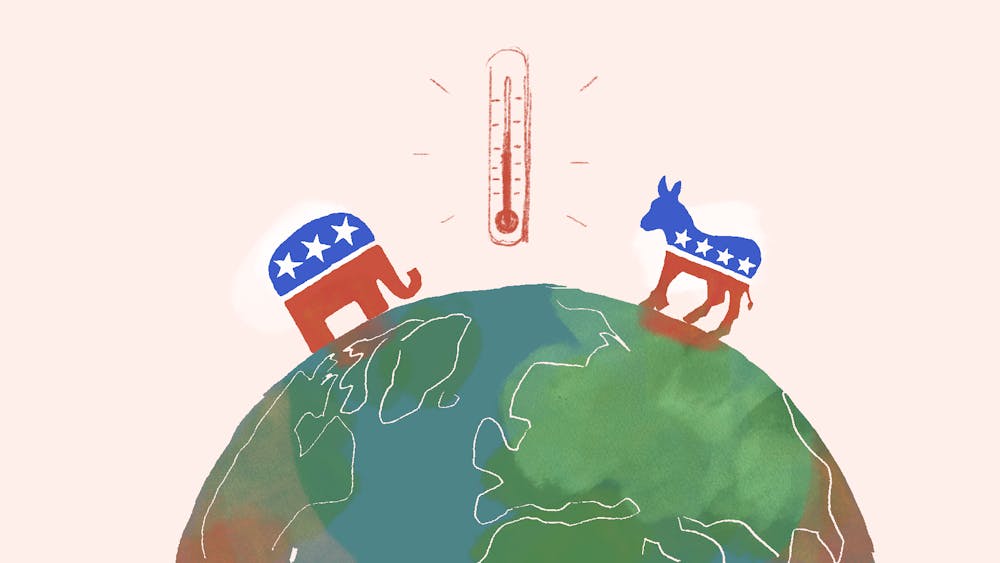In late February of this year, Congress passed a bill that would block a bill proposed by Biden that allowed retirement funds to consider environmental, social and governance (ESG) investing. This would have allowed pension fund managers to take into account the effects of climate change when determining where to invest.
Biden used his first veto in late March for the bill, saying that “the legislation passed by the Congress would put at risk the retirement savings of individuals across the country” in a video he posted on Twitter.
But why can’t climate change be a bipartisan issue?
The two–party system makes it impossible for many issues to be addressed, climate change being one of them. It’s been more than 50 years since a candidate that was not Republican or Democrat has won a single state in a presidential election.
This system does not allow for the nuances of sentiments and world views. To sum up someone’s political affiliation—and their stances on all issues—into two boxes is severely lacking. In fact, the Pew Research Center found that almost “four–in–ten (39%) say the statement ‘I wish there were more political parties to choose from in this country’ describes their views extremely or very well.”
Christopher Ingraham writes for The Washington Post that “researchers who study elections have found, over and over, that government tends to work better in multiparty proportional systems. Voter turnout is higher, for instance, because voters have more viable candidates to choose from. People report greater satisfaction with the government. Partisan debates are less negative. Minority populations get better representation.”
Climate change is unique in that it directly affects every single one of us. And having a sort of long–term view makes this issue even more prevalent. However, protecting the status quo means that climate change cannot be favored; the status quo is what got us here in the first place.
It’s no secret that we don’t have much more time to fix climate change. Data shows that the U.S. coastline will rise about 10–12 inches in the next 30 years, temperatures will rise about 1.5 degrees by 2050, and we will see a $7.3 billion increase in losses from hurricanes and coastal storms.
Making climate change and sustainability issues split between two parties means that there is no agreement on how to solve the issues. Bills like the ESG ban are proof that party alliance, when talking about the state of the world, is counterproductive.
A 2020 study by the Pew Research Center found that Democrats are, overall, more concerned with climate change than Republicans: “Democrats are more than three times as likely as Republicans to say dealing with climate change should be a top priority (78% vs. 21%).”
The stereotypical image of the “crunchy,” “granola” person associated with sustainability perhaps contributes to the ever–increasing disjunction between parties when it comes to climate change. It’s easy to dismiss lifestyles that don’t align with yours and even potentially threaten their way of living as frivolous and antithesis to your goals. However, we ought to change this image and make sustainability more accessible to everyone.
Bipartisan support is necessary for any real change when it comes to climate change. Bills that ban efforts like ESG investing act counterproductively; climate change is such a dire, time–sensitive issue that we can’t afford to allow politics to get in the way.







